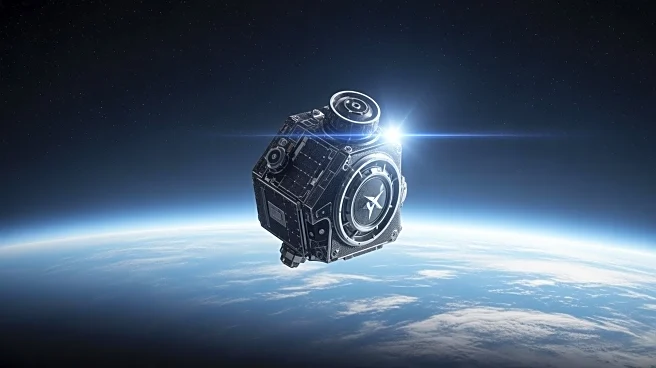What's Happening?
SpaceX, led by Elon Musk, has successfully launched its 10,000th Starlink satellite into orbit, marking a significant milestone in the company's satellite deployment efforts. This latest launch included
a batch of 56 satellites, further expanding the Starlink constellation. According to data from Celestrak, a non-profit satellite tracker, SpaceX now controls two-thirds of all active satellites in low-Earth orbit. As of October 20, 2025, 8,562 of the 12,955 active satellites are part of SpaceX's Starlink network, with an additional 1,500 satellites either inactive or no longer in orbit. This dominance in satellite control has sparked concerns about the power Musk holds through his Starlink network, especially given his previous claims of having unparalleled access to real-time global economic data.
Why It's Important?
The expansion of SpaceX's Starlink network has significant implications for global communications and data control. With Musk controlling a majority of active satellites, there are growing concerns about the influence he may wield over global internet access and economic data. This control could impact various industries, including telecommunications, data analytics, and international relations, as countries and companies may become reliant on Musk's satellite network for connectivity. Additionally, the concentration of satellite control raises questions about competition and regulation in the space industry, potentially prompting discussions among policymakers and industry leaders about the need for oversight and fair access to satellite resources.
What's Next?
As SpaceX continues to expand its Starlink network, stakeholders in the space industry and government may seek to address the regulatory and competitive implications of Musk's satellite dominance. Potential actions could include calls for increased oversight of satellite deployments and discussions on ensuring equitable access to satellite-based services. Furthermore, other companies in the space sector may accelerate their own satellite deployment plans to compete with SpaceX's growing network. The international community may also engage in dialogue about the geopolitical implications of a single entity controlling a significant portion of global satellite infrastructure.
Beyond the Headlines
The ethical and legal dimensions of Musk's satellite control are likely to become more prominent as the Starlink network grows. Concerns about privacy, data security, and the potential for monopolistic practices may lead to increased scrutiny from regulators and advocacy groups. Additionally, the cultural impact of widespread satellite internet access could transform how societies interact and access information, potentially bridging digital divides but also raising questions about digital sovereignty and the influence of private companies on public communication channels.









